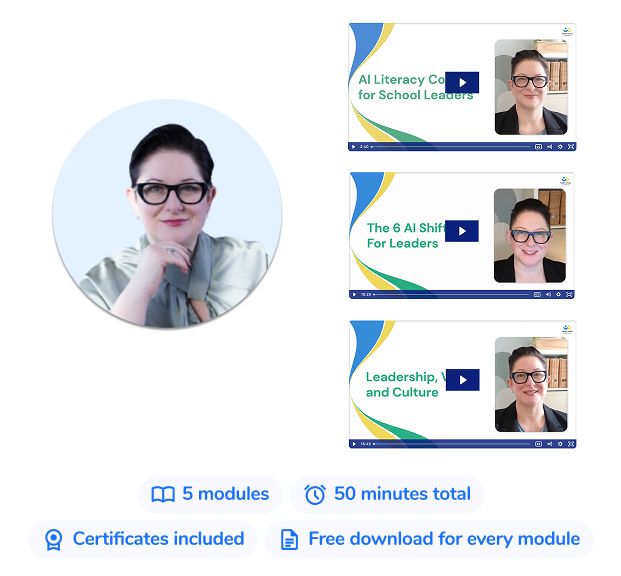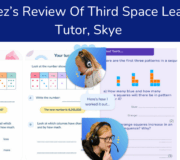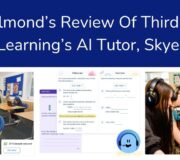7 Benefits Of One To One Tutoring Every School Leader Should Know
One-to-one tutoring is one of the few interventions with proven benefits for primary school and secondary school students. It can cater to each student’s needs and help them reach their full potential and academic success. And, it can also nurture a student’s self-esteem in a subject matter and in their whole self.
This guide is designed to give school leaders a better understanding of the benefits of one-to-one tutoring and why you should consider implementing it to improve academic performance and enhance students’ learning experience.
If you are interested in the results you can expect from one-to-one tutoring, take a look at Third Space Learning’s one-to-one AI maths tutoring with Skye, the AI maths tutor.
What is one-to-one tutoring?
One-to-one tutoring is typically a tutoring programme with one tutor for every student. A one-to-one tutor only works with one student at a time. This helps meet the student’s individual needs and learning needs from the first lesson and provides them with personalised teaching to accelerate progress.
Often, schools use one-on-one tutoring as an intervention strategy for core subjects, such as English or maths. The teaching strategies are the same as in a traditional classroom setting. However, personalised attention for individual students means the tutor can meet the student’s specific needs and areas of development, and closely monitor each child’s progress.
One-on-one tutoring can take place in person or online. Both aim to accelerate a student’s progress and provide a deeper understanding of the topics they need extra help with.
In person one-to-one tutoring
In person tutoring involves the tutor coming to the school, or using a current staff member. This usually takes place face-to-face. The private tutor or staff member may talk to the class teacher before and after the lesson, to discuss each child’s progress and performance. However, you are unlikely to receive formal reports after each session unless requested.
While learning is personalised for each student, the tutor can only work with one student at a time for this to truly be one-to-one tutoring. Hiring multiple in person one-to-one tutors can be costly.
Online one-to-one tuition
Online tuition usually takes place through interactive software. Sophisticated tutoring organisations use bespoke interactive classrooms with specific tools and lesson slides.
Using one-on-one online support means multiple students experience the benefits of tutoring simultaneously. Many students can log on to an online platform to interact with tutors at the same time. Often this is more affordable than in person one-on-one tutoring and more beneficial than in person group tutoring.
One-to-one AI tuition
The use of AI in education is changing the way schools offer and provide learning for students. In addition to the introduction of many AI tools to enhance teaching and learning and save teachers’ time, the transition from traditional to AI tutoring through the use of intelligent tutoring systems is helping close the attainment gap. In particular, voice-based AI tutors such as Skye are making effective one to one tutoring scalable for schools. Here are 5 ways schools are using AI tutoring to help close the attainment gap:
- One to one tutoring
- On-demand catch-up interventions
- Extra SATs and GCSE exam prep
- Real-time support as homework
- Last minute class cover
However, just like face to face or online one to one tutoring, it’s essential that AI tutoring keeps humans in the loop to ensure content is year group appropriate and aligns to the national curriculum and relevant exam boards. You’ll also need to make sure the AI tutor meets your AI policy guidelines.
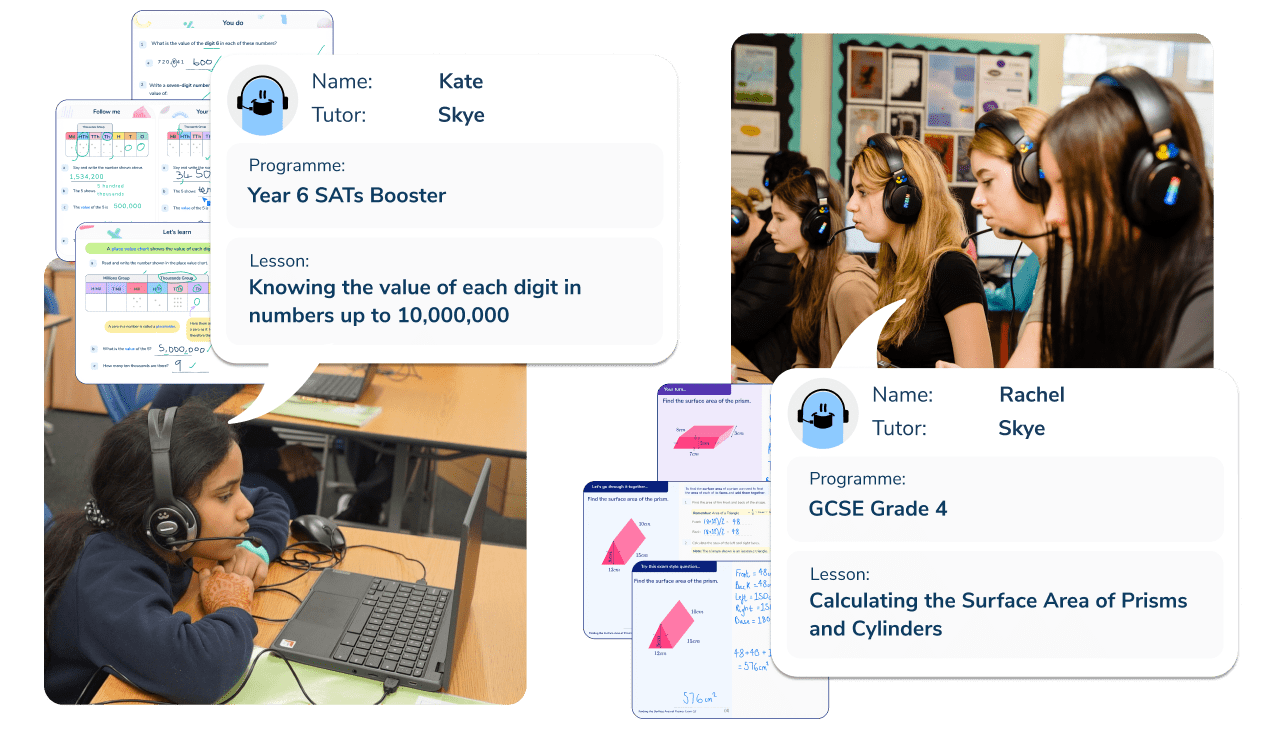
Meet Skye, the voice-based AI tutor making maths success possible for every student.
Built by teachers and maths experts, Skye uses the same pedagogy, curriculum and lesson structure as our traditional tutoring.
But, with more flexibility and a lower cost, schools can scale online maths tutoring to support every student who needs it.
Watch Skye in actionWhat are the benefits of one-to-one tutoring?
Choosing to hire a one-to-one maths tutor, whether traditional or the best AI tutor, may take some consideration. But, ultimately, the results and benefits of one-on-one tutoring speak for themselves.
1. Individual attention from a one-to-one tutor
Undivided attention for each student is one of the biggest benefits of one-to-one tutoring.
Every teacher has a few students in their class that they wish they could give undivided attention to because they would make incredible progress. But, in a class of 30 students, this isn’t possible.
One-on-one tutoring helps students receive the time and attention they need to understand the lesson concepts to keep up in class and reach age-related expectations by the end of Key Stage 2, their GCSEs or A-levels.
2. Personalised learning
One-to-one tuition allows individualised learning plans to be tailored to each student’s academic needs, learning style, and pace.
This personalisation ensures that students focus on the objectives they need help with most, closing the attainment gap.
Additionally, in one-on-one tutoring sessions, tutors can adapt teaching, pitch, pace and teaching strategies to suit the student’s strengths, weaknesses, and preferred learning modalities. This creates a deeper understanding and leads to mastery.
Third Space Learning offers personalised primary AI maths tutoring and secondary AI maths tutoring to help students reach their full potential and close the maths attainment gap.
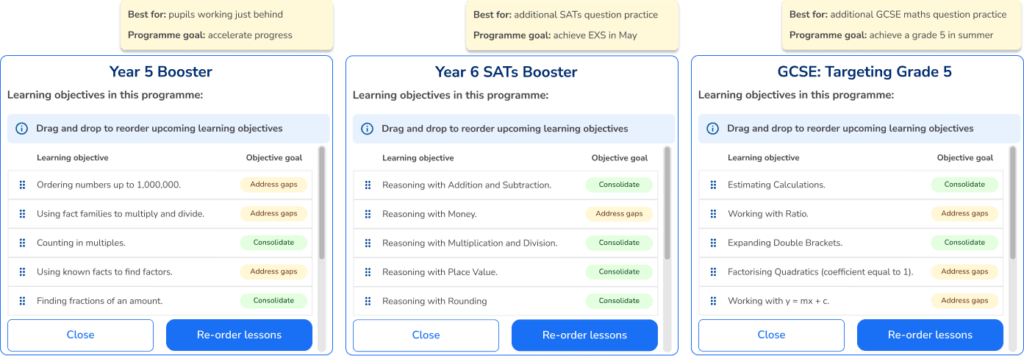
We’ve had phenomenal results using Third Space Learning. The tutoring really enhances pupils’ mathematical education, I have a lot of confidence in it.
Stacey Atkins, Director of Maths, Outwood Grange Academies Trust
3. Flexible scheduling
One-to-one tutoring sessions offer flexibility to schedule sessions around busy school timetables, particularly when opting for a tutoring service with online lessons.
Flexible scheduling allows schools to integrate tutoring at times most conducive to learning and least disruptive for students, whether it’s early morning or late afternoon.
With Third Space Learning, one to one AI tutoring sessions can be scheduled every 5 minutes, or even launched on demand, so you can change your lesson time to whenever works for you. A low fixed fee licence for unlimited students means you can increase or decrease the number of weekly sessions without any extra hidden costs.
Such flexible scheduling also reduces the risk of students missing whole-class learning for the same subject each week, enhancing accessibility to a broad curriculum.
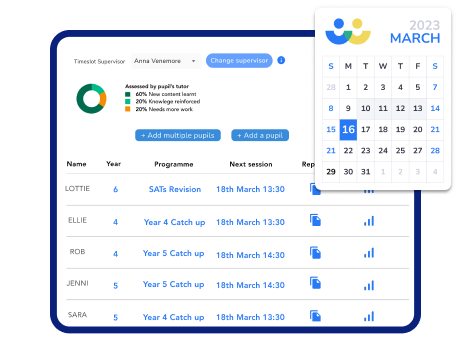
4. Reduced learning gaps
One-on-one tutoring provides targeted learning to help close students’ learning gaps in addition to the support they receive in the classroom setting.
With personalised tutoring, specific learning gaps can be addressed immediately, helping students close the attainment gap and reach age-related or GCSE grade-level expectations.
Tutors can spend time re-teaching foundational concepts that students may have missed and otherwise wouldn’t have time to do in class, preventing those gaps from widening.
Consistent one-to-one support helps students catch up to their peers and improves overall academic performance.
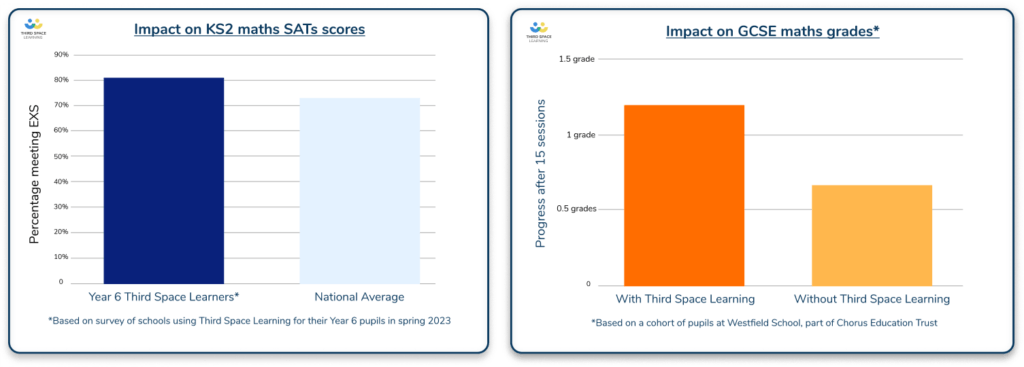
5. Immediate feedback
Feedback during one-to-one tutoring is immediate and personalised, making it more effective. When teachers have 30 students, feedback isn’t usually immediate. If it is whole-class feedback, it usually isn’t personalised.
When working one-on-one with a private tutor, students receive immediate feedback to help personalise the learning process. AI tutor Skye is trained by qualified teachers and maths specialists to identify misconceptions in real time and provide scaffolded support to help students reach the answer independently.
Students can then action their feedback in the same session, helping them make connections the next time they tackle a similar question.
Established tutoring programmes such as Third Space Learning offer free resources to support students’ progress. With a full lesson report for every student provided to schools after each session, schools and teachers can provide students with the appropriate resources to practice according to feedback.
Third Space Learning resources
Primary schools can access free maths resources in the Maths Hub. Simply sign up for a free account to access and download hundreds of free resources to support students and CPD videos to support staff.
Schools signed up for one-to-one AI maths tutoring have access to the Premium Maths Hub resources included in their tuition, so teachers can support every student. Schools can also subscribe to the Premium Maths Hub without signing up for AI tutoring.
Secondary schools can access the full Secondary Resource Library, including revision guides and past practice papers for each exam board.
6. Builds confidence
Students need to feel comfortable in their learning environment to participate and engage in learning. For students with anxiety, particularly maths anxiety, this isn’t always the case.
A one-to-one environment, through in-person or online tutoring with a highly-trained tutor, creates a low-stakes environment for the student. They are more likely to share their thinking and reasoning if they aren’t worried about getting the answer wrong.
One-to-one tuition provides a safe, relaxed space to learn in, where students might feel comfortable making mistakes. Most learning doesn’t come from getting an answer right; we learn from misconceptions.
One-to-one tutoring also offers nervous or shy learners a chance to practice answering questions outside the classroom. This helps boost their confidence and develop a growth mindset.
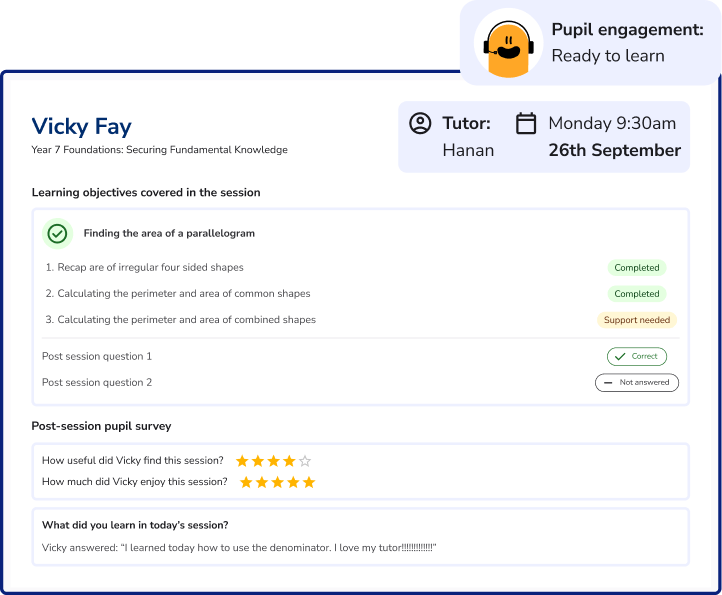
7. One-to-one tutoring is better value-for-money
At first, one-on-one tutoring can seem like the more expensive option. If you choose private tuition, it can be. But a benefit of online one-to-one tutoring is cost efficiency, particularly online one-to-one AI tutoring.
Schools using Third Space Learning’s one-to-one AI maths tutor, Skye, can save up to 90% of the cost of traditional tutoring.
There is also funding support to help pay for one-to-one tutoring, including pupil premium funding.
Third Space Learning believes that one-on-one maths tutoring should be available to all students; it’s not just for those who can afford a private tutor in the comfort of their own home. Tutoring helps accelerate progress and close the maths attainment gap. For this reason, we keep tutoring pricing affordable for schools to help as many students as possible.
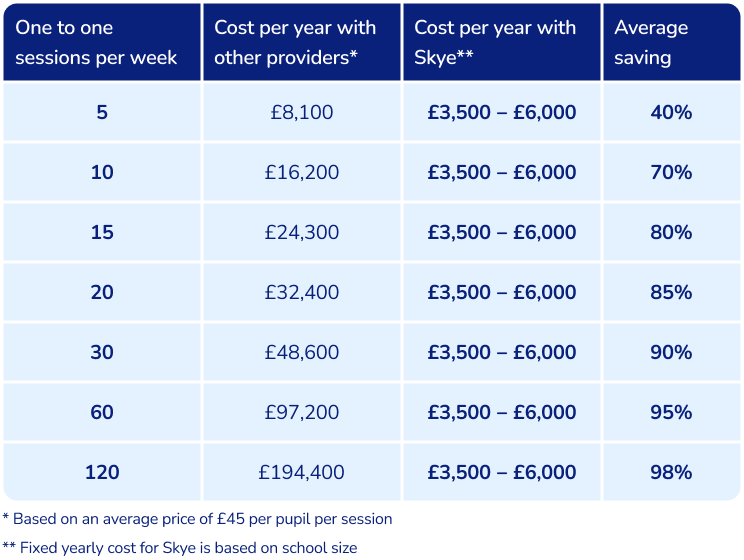
One-to-one tutoring has many benefits
Individual tutoring accelerates a student’s progress beyond classroom teaching and even small group tuition because of the extra time and attention invested in each student’s learning. The benefits of one-on-one tutoring are abundant. One-to-one tutoring can:
- Individualise and target learning to close attainment gaps;
- Accelerate progress;
- Provide immediate feedback;
- Build learners’ confidence;
- Create good study habits and skills.
One-to-one tutoring is the most effective way to target students in need of intervention outside of a classroom setting. If you’re still unsure, studies on one-to-one tuition from the EEF highlight the evidence to support it.
How Third Space Learning supports one-on-one maths tutoring
For over a decade, Third Space Learning has provided one-to-one maths tuition and maths interventions. Skye, the AI maths tutor, works one-to-one with multiple students simultaneously to help close the attainment gap for disadvantaged students. Here’s how it works.
Because you know your students best, you pick from our selection of tutoring programmes for primary and secondary school students created by maths experts to meet the individual needs of each student.
As part of the learning journey with Skye, pupils answer an assessment question at the start of each lesson to diagnose their understanding of the concept. This is the “Skill Check In” for that topic.
If the pupil shows they’re not yet secure in that concept, Skye uses scaffolded slides to teach that concept step-by-step. It models a similar example and works through questions together before moving on to independent practice and challenge. If the pupil shows they’re ready to progress, Skye skips straight to application and challenge.
Throughout the lesson, Skye uses formative assessment to identify misconceptions and adapt hints accordingly. And every lesson ends with a short summative assessment, called the “Skill Check Out,” to check understanding and track progress over time.
Schools receive a progress report for each student after every session to easily track student progress.
Because Third Space Learning’s one-to-one tutoring sessions are online, schools can support multiple students simultaneously without adding to teachers’ workloads.
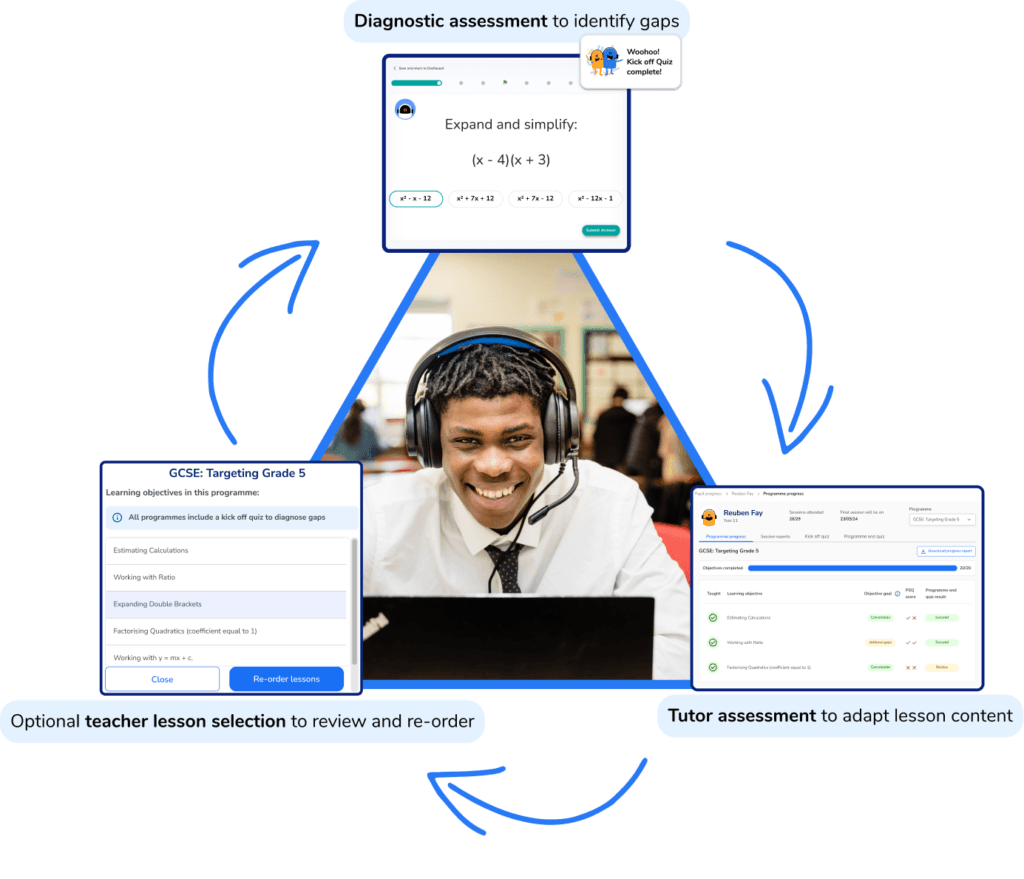
Benefits of one-on-one tutoring FAQs
One-on-one tutoring services are highly effective because they provide personalised, targeted instruction tailored to each student’s specific needs. This approach to individual learning helps students progress at their own pace, address specific learning gaps, and achieve better academic outcomes.
The advantages of one-to-one tutoring and teaching lie in the ability to offer customised learning experiences that can adapt to the learning styles of each student. Students who may otherwise struggle in a traditional classroom can receive the focused attention they need to succeed.
One-to-one support ensures students receive individualised help in real time, allowing immediate feedback. This focused, targeted support helps close learning gaps more effectively than generalised classroom teaching. Students may also receive mentoring from the tutor to help build their confidence and growth mindset.
DO YOU HAVE STUDENTS WHO NEED MORE SUPPORT IN MATHS?
Skye – our AI maths tutor built by teachers – gives students personalised one-to-one lessons that address learning gaps and build confidence.
Since 2013 we’ve taught over 2 million hours of maths lessons to more than 170,000 students to help them become fluent, able mathematicians.
Explore our AI maths tutoring or find out about one to one tuition for your school.
